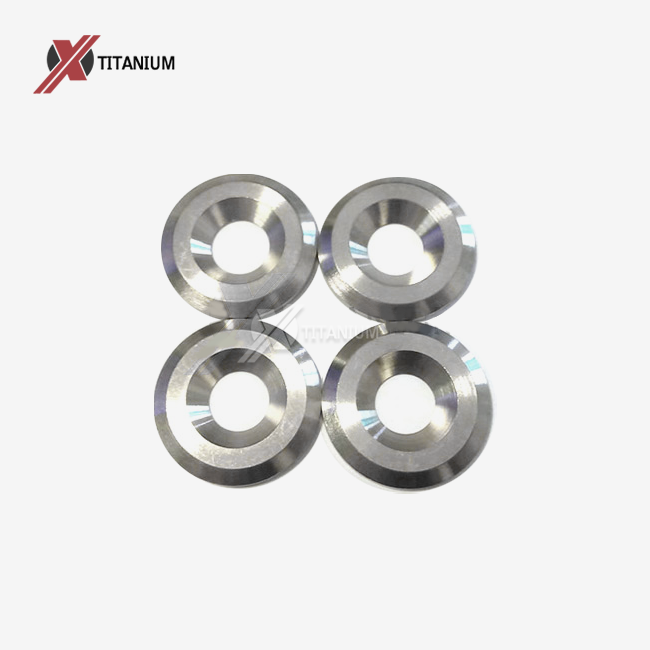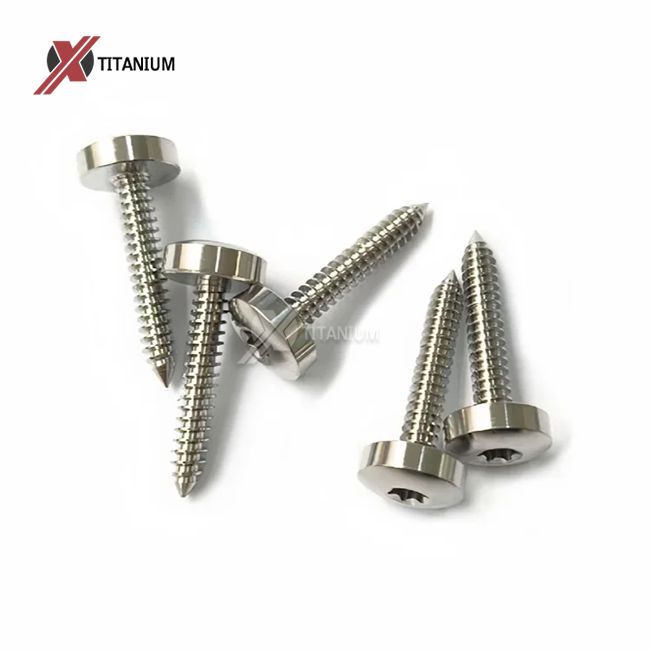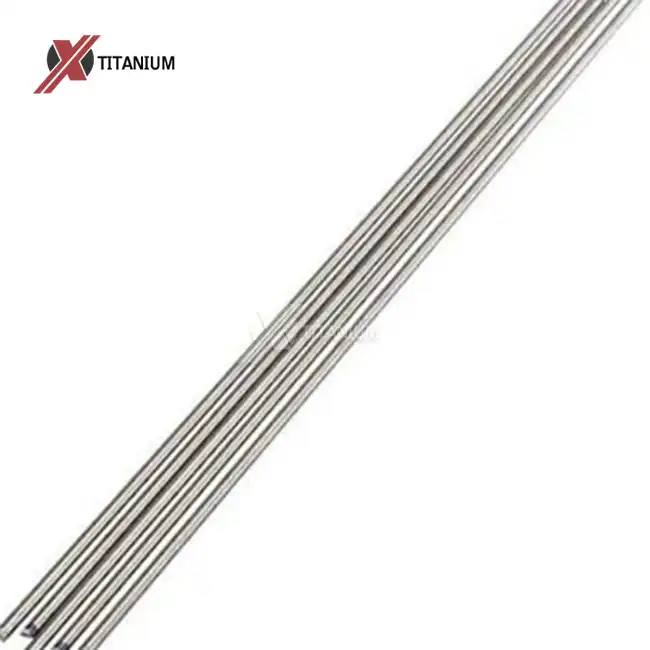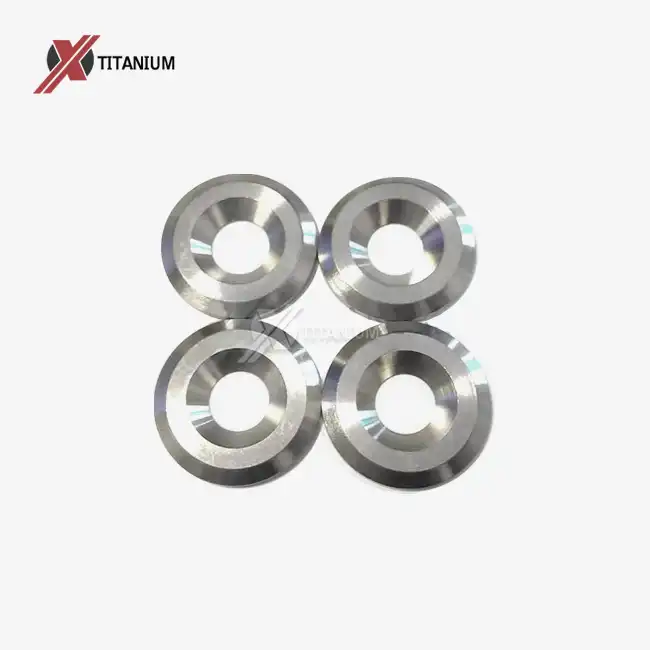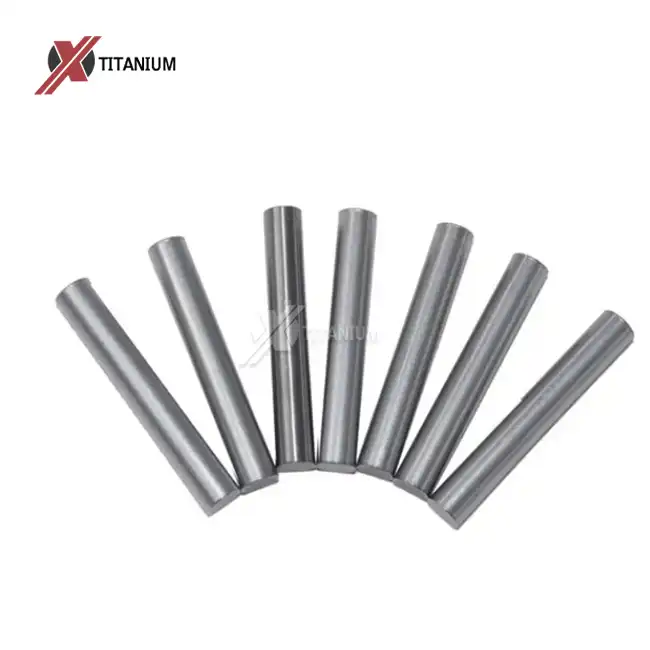The Advantages of Titanium Countersunk Washers in Automotive Applications
Superior Strength-to-Weight Ratio
One of the most compelling reasons for using titanium countersunk washers in high-performance cars is their exceptional strength-to-weight ratio. Titanium, particularly Grade 5 (Ti6Al4V) alloy, boasts a tensile strength of up to 895 MPa while maintaining a relatively low density of 4.51 g/cm³. This unique combination allows automotive engineers to design lighter yet stronger fastening systems, contributing to overall weight reduction without compromising structural integrity.
The lightweight nature of titanium countersunk washers is particularly beneficial in racing applications, where every gram counts. By replacing traditional steel washers with titanium alternatives, car manufacturers can achieve significant weight savings across multiple components. This cumulative effect translates to improved acceleration, handling, and fuel efficiency – all critical factors in high-performance vehicles.
Corrosion Resistance and Durability
High-performance cars are often exposed to harsh environments, including extreme temperatures, moisture, and corrosive substances. Titanium countersunk washers excel in these conditions due to their inherent corrosion resistance. The material's ability to form a protective oxide layer on its surface provides exceptional resistance to various forms of chemical attack, including saltwater and acidic environments.
This durability ensures that titanium countersunk washers maintain their structural integrity and appearance over time, even in challenging automotive applications. The longevity of these components not only enhances the overall reliability of high-performance vehicles but also reduces maintenance requirements and associated costs in the long run.
Heat Dissipation and Thermal Stability
High-performance cars generate significant amounts of heat during operation, particularly in areas close to the engine and exhaust system. Titanium countersunk washers offer excellent thermal properties that make them well-suited for use in these high-temperature environments. The material's low thermal expansion coefficient helps maintain consistent fitment and tension in fastened joints, even as temperatures fluctuate.
Furthermore, titanium's ability to conduct heat efficiently aids in dissipating thermal energy away from critical components. This characteristic can help prevent localized hot spots and reduce the risk of thermal fatigue in high-stress areas of the vehicle. By incorporating titanium countersunk washers in heat-sensitive locations, automotive engineers can enhance the overall thermal management of high-performance cars.
Design Considerations for Titanium Countersunk Washers in Performance Vehicles
Precision Manufacturing and Tolerances
The effectiveness of titanium countersunk washers in high-performance cars relies heavily on precise manufacturing processes. CNC machining techniques are often employed to ensure tight tolerances and consistent quality across production runs. The countersunk design requires careful consideration of angles and depths to achieve proper seating and load distribution.
Automotive engineers must work closely with titanium product manufacturers to specify the exact dimensions and tolerances required for each application. This collaboration ensures that the titanium countersunk washers integrate seamlessly with other components and perform optimally under the demanding conditions experienced in high-performance vehicles.
Surface Treatments and Finishes
While titanium naturally possesses excellent corrosion resistance, various surface treatments can further enhance its properties for automotive use. Anodizing is a popular choice for titanium countersunk washers, as it not only improves corrosion resistance but also allows for customization through a range of vibrant colors. This aesthetic flexibility enables designers to coordinate fasteners with the overall color scheme of high-performance cars or to use color-coding for easy identification during assembly and maintenance.
Other surface treatments, such as nitriding, can be applied to titanium countersunk washers to increase surface hardness and wear resistance. These treatments are particularly beneficial in applications where the washers may be subject to high levels of friction or abrasion, such as in suspension components or drivetrain assemblies.
Load Distribution and Stress Analysis
The design of titanium countersunk washers for high-performance cars must take into account the specific loads and stresses they will encounter during operation. Finite element analysis (FEA) and other computational tools are often employed to optimize the washer geometry for maximum strength and even load distribution.
Factors such as bolt preload, dynamic forces, and thermal cycling must be carefully considered to ensure that the titanium countersunk washers perform reliably under all operating conditions. This analysis may lead to design refinements, such as adjustments to the countersink angle or the incorporation of additional features to enhance load-bearing capacity.
Applications and Performance Benefits in High-Performance Cars
Chassis and Suspension Components
Titanium countersunk washers find extensive use in the chassis and suspension systems of high-performance cars. Their lightweight properties contribute to reduced unsprung mass, which in turn improves suspension responsiveness and handling characteristics. Common applications include mounting points for control arms, shock absorbers, and anti-roll bars.
The corrosion resistance of titanium countersunk washers is particularly valuable in these areas, as suspension components are often exposed to road debris, water, and de-icing salts. By maintaining their integrity in these harsh conditions, titanium washers help ensure consistent performance and reduce the risk of fastener failure over time.
Powertrain and Drivetrain Integration
High-performance engines and transmissions generate significant heat and vibration, making them ideal candidates for titanium countersunk washer applications. These washers are often used in mounting points for engine accessories, transmission casings, and driveshaft components. The material's thermal stability helps maintain proper clamping force even under extreme temperature fluctuations, reducing the risk of fastener loosening or joint failure.
Additionally, the weight savings achieved by using titanium countersunk washers in powertrain applications can contribute to improved throttle response and acceleration. Every gram saved in rotating or reciprocating masses can have a noticeable impact on engine performance and efficiency.
Aerodynamic and Body Panel Fastening
The sleek designs of high-performance cars often incorporate lightweight body panels and aerodynamic elements. Titanium countersunk washers are ideal for securing these components, as they provide a flush finish that doesn't disrupt airflow or aesthetics. The washers' high strength allows for secure fastening without the need for larger, heavier alternatives.
In applications such as rear spoilers, diffusers, and underbody panels, titanium countersunk washers help ensure that critical aerodynamic components remain securely attached even under high-speed conditions. The material's resistance to fatigue and vibration further contributes to the long-term reliability of these fastened joints.
Conclusion
Titanium countersunk washers have emerged as a crucial component in the pursuit of automotive excellence. Their unique combination of strength, lightweight properties, and corrosion resistance makes them an ideal choice for high-performance car manufacturers and enthusiasts alike. By carefully considering the design, manufacturing, and application of these specialized fasteners, engineers can unlock new levels of performance, durability, and efficiency in modern sports cars and racing vehicles.
As the automotive industry continues to push the boundaries of what's possible, titanium countersunk washers will undoubtedly play an increasingly important role in shaping the future of high-performance vehicles. For those seeking to explore the potential of titanium fasteners in automotive applications, Baoji Chuanglian New Metal Material Co., Ltd. offers expert guidance and high-quality products. To learn more about our titanium countersunk washers and other titanium components, please contact us at info@cltifastener.com or djy6580@aliyun.com.
